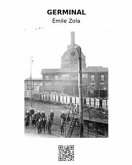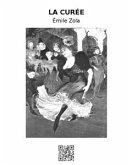Germinal(1885) is the thirteenth novel in Émile Zola's twenty-volume series Les Rougon-Macquart. Often considered Zola's masterpiece. The novel's central character is Étienne Lantier, previously seen in L'Assommoir (1877), and originally to have been the central character in Zola's "murder on the trains" thriller La Bête humaine (1890) before the overwhelmingly positive reaction to Germinal persuaded him otherwise. The young migrant worker arrives at the forbidding coal mining town of Montsou in the bleak area of the far north of France to earn a living as a miner. Sacked from his previous job on the railways for assaulting a superior, Étienne befriends the veteran miner Maheu, who finds him somewhere to stay and gets him a job pushing the carts down the pit.Étienne is portrayed as a hard-working idealist but also a naïve youth; Zola's genetic theories come into play as Étienne is presumed to have inherited his Macquart ancestors' traits of hotheaded impulsiveness and an addictive personality capable of exploding into rage under the influence of drink or strong passions. Zola keeps his theorizing in the background and Étienne's motivations are much more natural as a result. He embraces socialist principles, reading large amounts of working class movement literature and fraternizing with Souvarine, a Russian anarchist and political émigré who has also come to Montsou to seek a living in the pits. Étienne's simplistic understanding of socialist politics and their rousing effect on him are very reminiscent of the rebel Silvère in the first novel in the cycle, La Fortune des Rougon (1871).While this is going on, Étienne also falls for Maheu's daughter Catherine, also employed pushing carts in the mines, and he is drawn into the relationship between her and her brutish lover Chaval…..
Bitte wählen Sie Ihr Anliegen aus.
Rechnungen
Retourenschein anfordern
Bestellstatus
Storno









